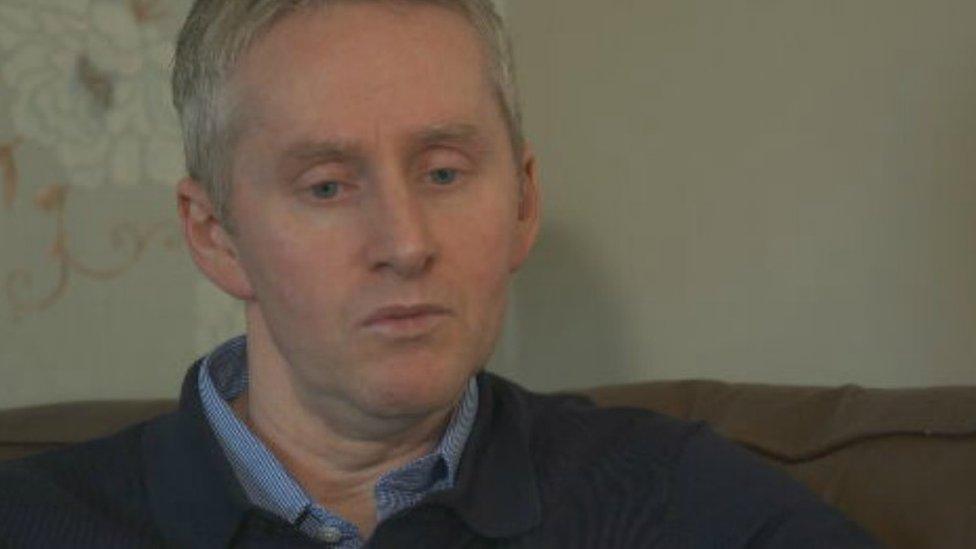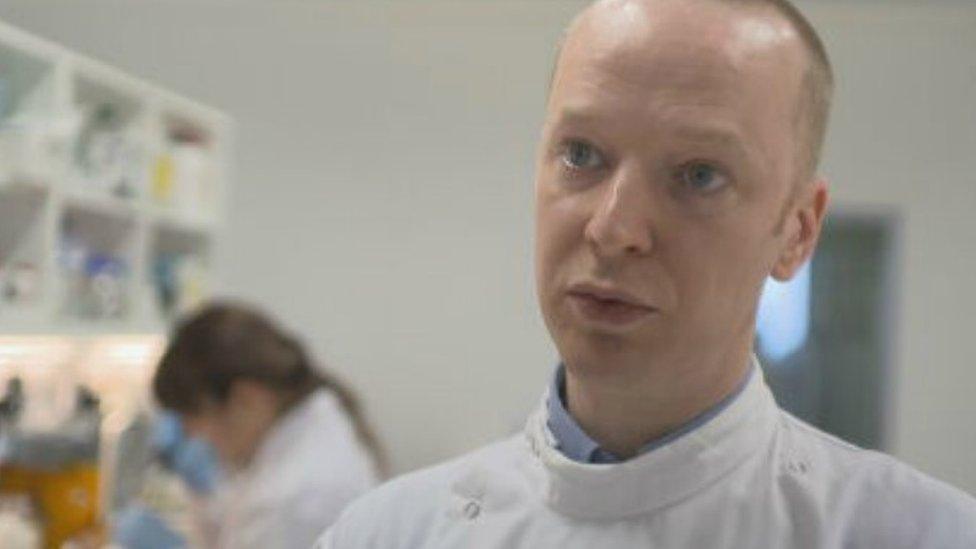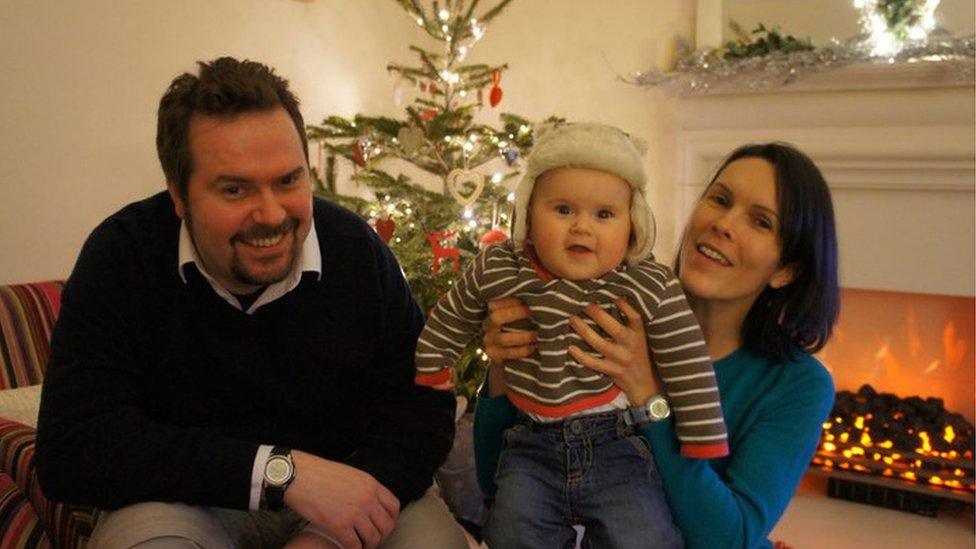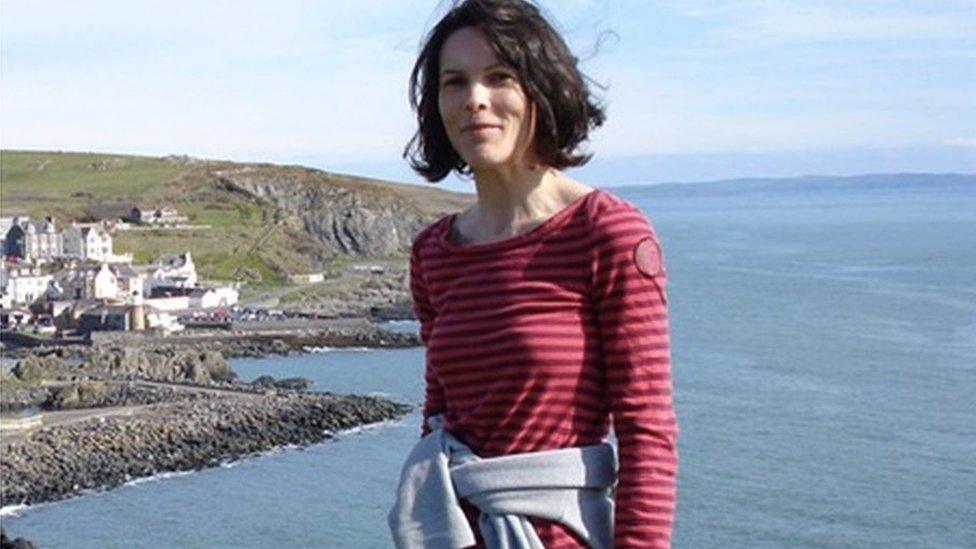Do genes make people more likely to die from sepsis?
- Published
The sepsis survivor who was told she had left it 'too late'
Scots scientists are trying to find out what genetically makes people more likely to die from sepsis.
About 3,500 people die every year in Scotland from the potentially lethal condition, which is caused when the immune system overreacts to infection.
Researchers at Edinburgh University hope a major study will help unlock some of the clues to how DNA variants govern sepsis recovery.
They said it could lead to more effective treatments.
About one in five patients who contract sepsis will die from the condition.
The study will compare DNA from people admitted to hospital who later die from sepsis with those who survive.
The researchers told BBC Scotland's The Nine they hope to isolate DNA signals from thousands of patients and use the information to identify future drug targets.
What is sepsis?

Sepsis occurs when the immune system reacts to infection, causing symptoms such as cold hands and feet, mottled skin and a quickened heart rate.
It can quickly lead to multiple organ failure and death.
Sepsis needs to be spotted and treated quickly, usually with antibiotics, before it spreads.
Taylor was fit and happy but died from sepsis

Taylor Panton was "vivacious and clever"
Despite an underlying heart condition, Taylor Panton was fit and happy but his life was cut short at just 19, by sepsis.
His father Robbie says Taylor was "vivacious and clever" and people would "gravitate towards him".
The teenager was admitted to hospital with a chest infection.
His parents thought antibiotics would clear it up but Taylor's body was not responding.

Robbie Panton described how sepsis affected his son, Taylor.
"The colour from his face was completely drained," his father says.
"He was really struggling for breath even though he had an oxygen mask on."
When Taylor was transferred to intensive care, his father said he realised this was "as serious as it gets".
One of the ICU specialists told Mr Panton, from Airdrie in North Lanarkshire, that his son had sepsis.
"That was the first time that we'd heard the word," he said.
"By that time all the antibiotics and everything they tried just wasn't working."
Taylor died on 15 October 2015.
Lesley was told it was too late but survived

Lesley Jack survived against the odds
Lesley Jack called NHS 24 with flu symptoms and they sent her straight to hospital.
"The nurse took my socks and shoes off to get me comfortable and at that point she saw the colour of my legs, which were purple," she said.
"I remember her saying very sternly 'you've left this too late'."
Lesley, from Wishaw in North Lanarskhire, had sepsis. She also had pneumonia and her heart stopped.
Against the odds, doctors saved Lesley.
"Having to deal with the fact that you potentially should not be alive is quite harrowing," she said.
"People ask me questions like 'why was it you?'. I don't know why it was me.
"If I had the answers I would like to give them to other people."
'We want to find clues'

Dr Kenneth Baillie said he thought there would be clues in the human genome
Dr Kenneth Baillie, academic consultant at the University of Edinburgh's Roslin Institute, hopes his study, funded by the charity Sepsis Research, external, will unlock the sepsis puzzle.
He said: "We think we will be able to find clues in the human genome.
"People who died from sepsis are likely to be genetically different from the rest of the population.
"We think that if we find those genes then we will be able to identify drug treatments that will help people to survive."
BBC Scotland understands the Scottish government will launch a second public awareness campaign on Sepsis next month.
It will focus on spotting the symptoms of the condition.
An initial campaign ran for four weeks in 2017.
- Published5 February 2018

- Published4 September 2017
